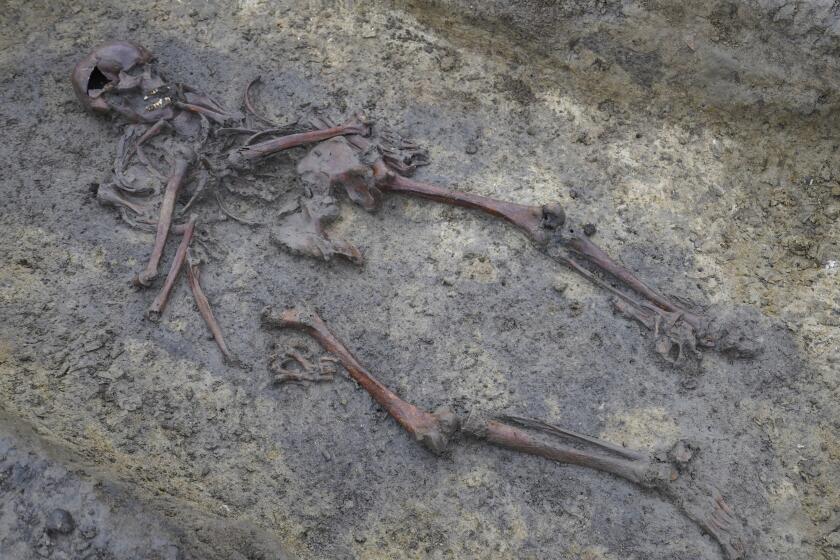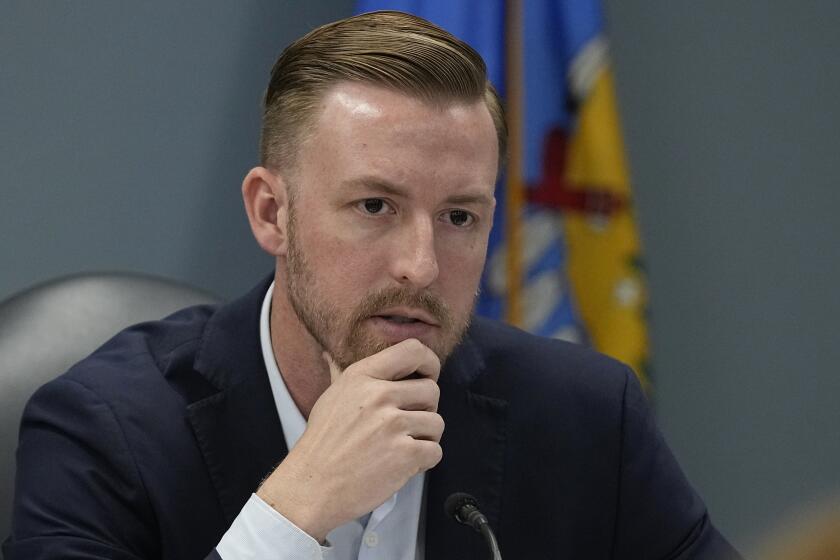26 Months at Gunpoint
March 31, 1994 After distributing food to poor families in Puerto Lleras, Colombia, missionary Ray Rising was indulging the children in one of their favorite activities: a ride on the back of his motorcycle.
As the sun was setting, Rising offered the last ride on his Suzuki DR-250 to a little girl, then headed for the compound where he, his wife and children and other missionary families lived.
“As I neared the back gate, I noticed a man walking ahead of me,” Rising recalls. “As I slowed down, he pulled out a gun, then two more men ran out from behind. I asked the gunman what he wanted, and he said I needed to leave the bike and come with him.”
When Rising did not return home, friends from the missionary center set out to look for him and found his motorbike.
That evening and the following day Rising’s captors--leftist rebels who hoped to collect a ransom--kept him on the move, hurrying through the jungle on foot and by horseback and canoeing down unfamiliar rivers.
April 1994
Rising was exhausted and covered with bug bites when he and his guerrilla captors finally set up camp several days later deep in the rain forest. A bed of sticks covered with leaves and surrounded by a canopy of mosquito netting was set up for him. Overhead was plastic sheeting to protect him from the rain--more than 100 inches a year.
He was told by the unit commander that he would be detained only a week. When that period passed without action, Rising became concerned for his life.
He asked the guerrillas if they intended to kill him. “We are not assassins, we do not kill prisoners,” they told him. Seemingly to prove the point, they asked Rising to make a list of items he would like to have during his captivity. His list consisted of toiletries, spare clothes, paper, pen and a Bible. He was given a Spanish-language New Testament.
May-July 1994
For the first several months, the rebel unit commander prohibited communication between Rising and the eight soldiers guarding him. To keep Rising safe and to maintain secrecy, the unit moved frequently, usually at night by dugout canoes.
Throughout his captivity, Rising’s days were strictly regimented and he was under constant watch by his machine-gun carrying guards, many of whom were teenage boys and girls.
He rose before dawn each morning. Breakfast at 6 a.m. consisted of eggs, tortillas, rice and soup. Lunch was the same fare as breakfast, followed by exercise. Accompanied by his guards, he would jog around the camp, which was about 75 yards in diameter, and do sit-ups. By the end of his captivity, Rising says he was also able to do 130 push-ups. Dinner was the same as other meals, although it sometimes included wild meat, such as armadillo.
During the morning hours, while the guards cleaned their weapons or talked, Rising read his Bible and memorized scriptures. “Out of the book of Psalms, I felt I had received three distinctive messages from God: that I would eventually be liberated, that nothing bad would happen to me, and to not be afraid, for God was with me.”
These passages comforted him when he heard bombs and machine-gun fire in the distance, or was confronted by the scorpions and coral snakes.
Aug. 2, 1994
On the day Rising turned 52, the unit commander was replaced by another, more lenient one who allowed him to talk to the soldiers.
“Over time I developed a relationship with them,” he says. “We talked about our families and our beliefs.” One thing they did not discuss was politics. “I knew talking politics would not be very healthy.”
Rising suffered bouts of depression. He missed his family and friends terribly and wondered if his wife, Doris, was receiving the letters he was allowed to write her. (Later, he would learn that five of his 68 letters did make it through.)
Dec. 24, 1994
On Christmas Eve, Rising was able to hear the radio being played by a soldier in a nearby shelter. Usually when the soldier left his tent he would turn the radio off, but he didn’t on this occasion. Rising heard a familiar voice and crept closer to the radio. It was his wife. She expressed her love for her husband.
June 1995
Rising’s guards asked him to repair a radio-cassette player. He fixed the cassette and was listening to the radio to determine any problems with it when he heard a news report that two American missionaries from New Tribes Mission had been killed.
Tim Van Dyke and Steve Welsh had been kidnapped about 30 miles from where Rising was taken. Rising was aware of their captivity, as well as that of three others with New Tribes Mission, and had been praying for them.
News of their death shook Rising. He had begun to trust his captors and believed their assertion that they would not harm their prisoners. He asked the commander about the two deaths and was told they were caught in cross-fire between the guerrillas and the nationals.
It is not known if that is what triggered a break in the silence from Rising’s captors, but shortly thereafter negotiations for his release resumed.
April 12, 1996
Rising’s captors told him they had received orders to move closer to a main river that flows north toward civilization. Rising was discouraged at the time and did not know whether or not to believe that a release was pending.
Over the next several weeks more rumors carried the message that freedom was near, and Rising allowed himself to become excited over the prospect.
June 16, 1996
At 1 p.m. the order came to prepare Rising for his release. He packed up his few belongings and was ready to go when a tremendous rainstorm delayed their departure. When the rain finally subsided, the guerrillas lined up and spoke to Rising one at a time. They wished each other well and then, in the dark, began sloshing through the mud and dense, rain-soaked underbrush.
June 17, 1996
Their destination was a remote dirt road where Rising was to be released. He was told to hide in the bushes until the identity of the friend who was to meet him was confirmed. At 6 a.m., Rising was told that he was free to go. Numb, but elated, he climbed on the back of his friend’s motorcycle and they rode directly to Bogota.
More to Read
Sign up for Essential California
The most important California stories and recommendations in your inbox every morning.
You may occasionally receive promotional content from the Los Angeles Times.










